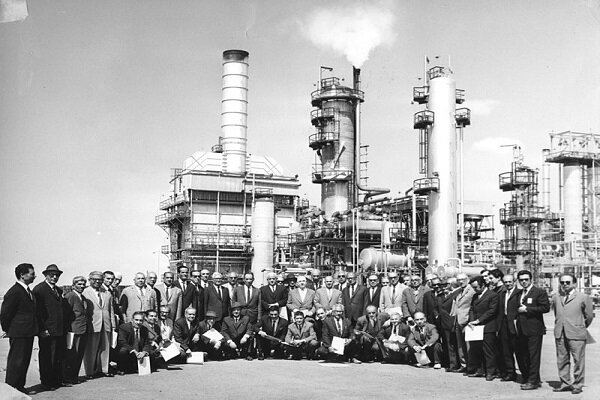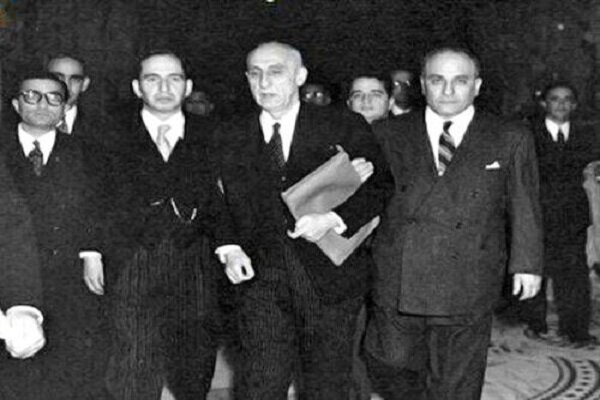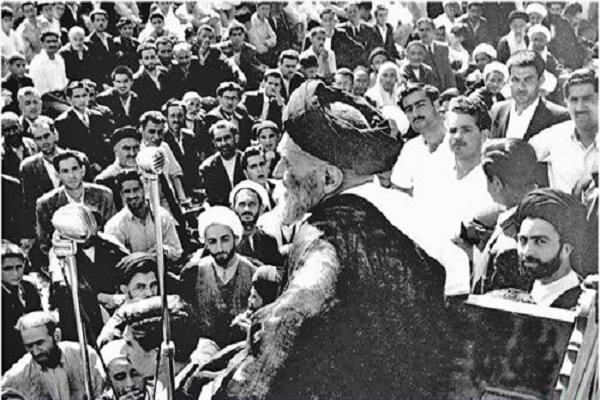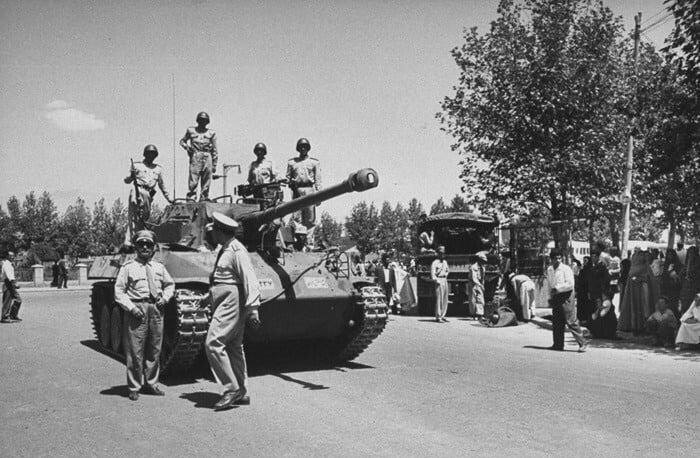The Iranian oil industry was nationalized due to a movement within the Iranian parliament to take control of the oil industry which was dominated by foreign interests and operated by private companies.
Mohammad Mosaddegh, the future prime minister of Iran and a member of Iran's parliament for the National Front led the movement which resulted in the establishment of a democratic government and the pursuit of Iranian national sovereignty.
Greed of Western powers for Iranian oil
Western companies have been involved in oil extraction in Iran and other countries in the Middle East since extraction had become technically and financially feasible.
The movement sought to cut the hands of Britain which was exploiting Iran’s oil and giving a tiny portion back to the country.
Nationalizing the oil industry was the reaction to the following concessions made by Iran to foreign powers: the Reuter concession of 1872, the D'Arcy Concession, the 1933 agreement between the Iranian government and AIOC, and the Gas-golshaian contract.
From 1949 on, sentiment for the nationalization of Iran's oil industry grew. In 1949 the Majlis approved the First Development Plan (1948-55), which called for comprehensive agricultural and industrial development of the country. The Plan Organization was established to administer the program, which was to be financed in large part from oil revenues. Politically conscious Iranians were aware, however, that the British government derived more revenue from taxing the concessionaire, the Anglo-Iranian Oil Company (AIOC--formerly the Anglo-Persian Oil Company), than the Iranian government derived from royalties. The oil issue figured prominently in elections for the Majlis in 1949, and nationalists in the new Majlis were determined to renegotiate the AIOC agreement. In November 1950, the Majlis committee concerned with oil matters, headed by Mosaddeq, rejected a draft agreement in which the AIOC had offered the government slightly improved terms.
When the AIOC finally offered fifty-fifty profit-sharing in February 1951, sentiment for the nationalization of the oil industry had become widespread.

Dr. Mohammad Mosaddeq: Symbol of Iranian Nationalism and Struggle Against Imperialism
Mohammad Mosaddegh was the son of an Iranian public official who grew up as a member of Iran’s ruling elite. He received a Doctor of Law degree from the University of Lausanne in Switzerland and then returned to Iran in 1914 and was appointed governor-general of the important Fars province. He remained in the government following the rise to power of Reza Khan in 1921 and served as minister of finance and then briefly as minister of foreign affairs. Mosaddegh was elected to the Majles (parliament) in 1923. When Reza Khan was elected shah in 1925, however, Mosaddegh opposed the move and was compelled to retire to private life.
Mosaddegh reentered public service in 1944, following Reza Shah’s forced abdication in 1941, and was elected again to the Majles. An outspoken advocate of nationalism, he soon played a leading part in successfully opposing the grant to the Soviet Union of an oil concession for northern Iran similar to an existing British concession in southern Iran.
He built considerable political strength, based largely on his call to nationalize the concession and installations in Iran of the British-owned Anglo-Iranian Oil Company.
In March 1951 the Majles passed his oil-nationalization act, and his power had grown so great that the shah, Mohammad Reza Shah Pahlavi, was virtually forced to appoint him premier.

Iran's Parliament approved oil nationalization agreement
The 16th Majlis consisted of some members from the National Front such as Mosaddegh. Mosaddegh had sought to audit the documents of AIOC, to verify that AIOC was paying the contracted royalties to Iran, and to limit the company's control over Iranian oil reserves. AIOC refused to cooperate with the Iranian government. In November 1950, the rejection of the oil supplemental agreement was offered by the oil committee of Majlis which was chaired by Mosaddegh. The prime minister at the time, Haj Ali Razmara, opposed the measure.
On March 7, 1951, Razmara was murdered by Khalil Tahmasebi, a member of Fada'iyan-e Islam. After the death of Razmara, the Majlis began the process of nationalizing the Iranian oil industry.
On March 15, 1951, legislation to nationalize the oil industry was passed by the Majlis with a majority of votes. On March 17 the Majlis verified the nationalization of Iran's oil industry and the AIOC was nationalized.
Ayatollah Kashani: Example of clergy acting in political development
Historical documents of the era show that Ayatollah Kashani played an important and unique role in the struggles for the nationalization of the oil industry and he has a great right to the Iranian nation as he set the ground for freedom of God-given energy sources in Iran.
Ayatollah Kashani rose against the incompetent government and opposed the ratifications of the Majlis in the conclusion of oil contracts with colonialist powers, especially Britain. He even wrote a letter to the UN.
In a strong protest to the measures of the British oil company, Ayatollah Kashani stated along with several lawmakers to annul the contract with the British consortium. But the puppet regime, at the behest of his masters in London, arrested Ayatollah Kashani and sent him to exile.
Prime Minister Mohammad Mosaddeq, inspired by Ayatollah Kashani's struggles and supported by the people, would often stress that Iranians should administer and exploit their oil resources. Finally, Iran's oil industry was nationalized in 1951 and Mosaddeq's government, despite plots and obstructionism, decided to execute the law as of April 1951.

Aftermath of Oil Nationalization: US, UK conspiracy,1953 Iranian coup d'état
The British oil companies retaliated against the nationalization of their petroleum assets by withdrawing their technical personnel. Petroleum production fell to near-zero levels. The British government froze the Iranian government's financial assets around the world and instituted an embargo on the purchase of Iranian oil.
In 1953 after considerable economic turmoil in Iran, Shah Reza Pahlavi tried to dismiss Mossadeq as Prime Minister. There was violent public protest and the Shah left Iran, apparently having been deposed. But the U.S. and British governments, acting in collaboration with the military officers Mossadeq had dismissed, organized a coup d'etat. Street mobs were hired to demonstrate against Mossadeq and then the military took control in the name of maintaining public order. The Shah returned to Iran and took control of the government. Mossadeq was tried and convicted of treason and sentenced to three years in prison and house arrest for the rest of his life.
The British-American coup in August 1953 against the government of Mosaddeq was another plot hatched by the enemies of the Iranian nation. After the coup, different oil giants such as British Petroleum, Shell, Gulf Oil Corporation, and Texaco entered the arena of pillaging Iran's oil and the formation of a new consortium. With the start of the consortium's work, the activities of the Iranian government and the Iranian National Oil Company were limited. The members of the consortium would decide on the rate of production and price of oil without the interference of the Iranian government as the main factor which had to determine the revenues of the country. Such was the fate of the Iranian oil till the victory of the Islamic Revolution which cut the hands of the plunderers from the resources of the country.

Report By Sahar Dadjoo

























Your Comment